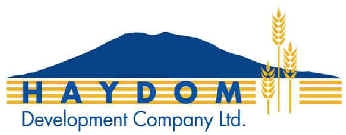Hlin
Irene Sagen Grung has written a Master's Thesis (The University of
Agder) in Norway from 2011 titled "Haydom
Lutheran Hospital: A Sustainable
Health-Providing Organization or a ‘White
Elephant’?" In her thesis
she writes on page 73 and 74 under the heading
”5.10.13 HLH as a Development
Agent”:
“The
last farm to be bought was the Mulbadaw farm. However, due to conflict
between HLH, the local populations and the former administrative-team at
Mulbadaw, I was discouraged from including any discussion of the farm into
this thesis (Interview A9).Moreover, during the pre-visit to HLH, it
became apparent that the Medical Director did not know that he was part of
the board at Mulbadaw. To me the lack of transparency, willingness to
discuss the farm and lack of knowledge about responsibilities towards the
farm, questions the actual processes behind the conflict and how it is
handled by the management at HLH (see Chapter 8). It is also my belief
that not being proactive towards the conflict and going into dialogue with
the local population could threaten the future sustainability of HLH.”
On page 73 and 74under
the heading“8.3
Skepticism by the Administration” Grung writes:
”There
was also unwillingness amongst administration, staff and volunteers to
discuss parts of my initial thesis, notably the Mulbadaw
Farm. The farm therefore had to be partly excluded from my thesis. However, I
still firmly believe that the farm is of great importance when analyzing
the future sustainability of HLH and HLH’s relationship with the local
community. Especially, with the ongoing conflict of who is in charge and
who is the owner of the farm. My point of view is that this conflict
reduces the trustworthiness of HLH and therefore its future sustainability.”
As you can read it's not only HDC that's surprised by the lack of
transparency concerning the Mulbadaw farm. Read the whole thesis here.
Also
read about who owns the Mulbadaw farm here.

